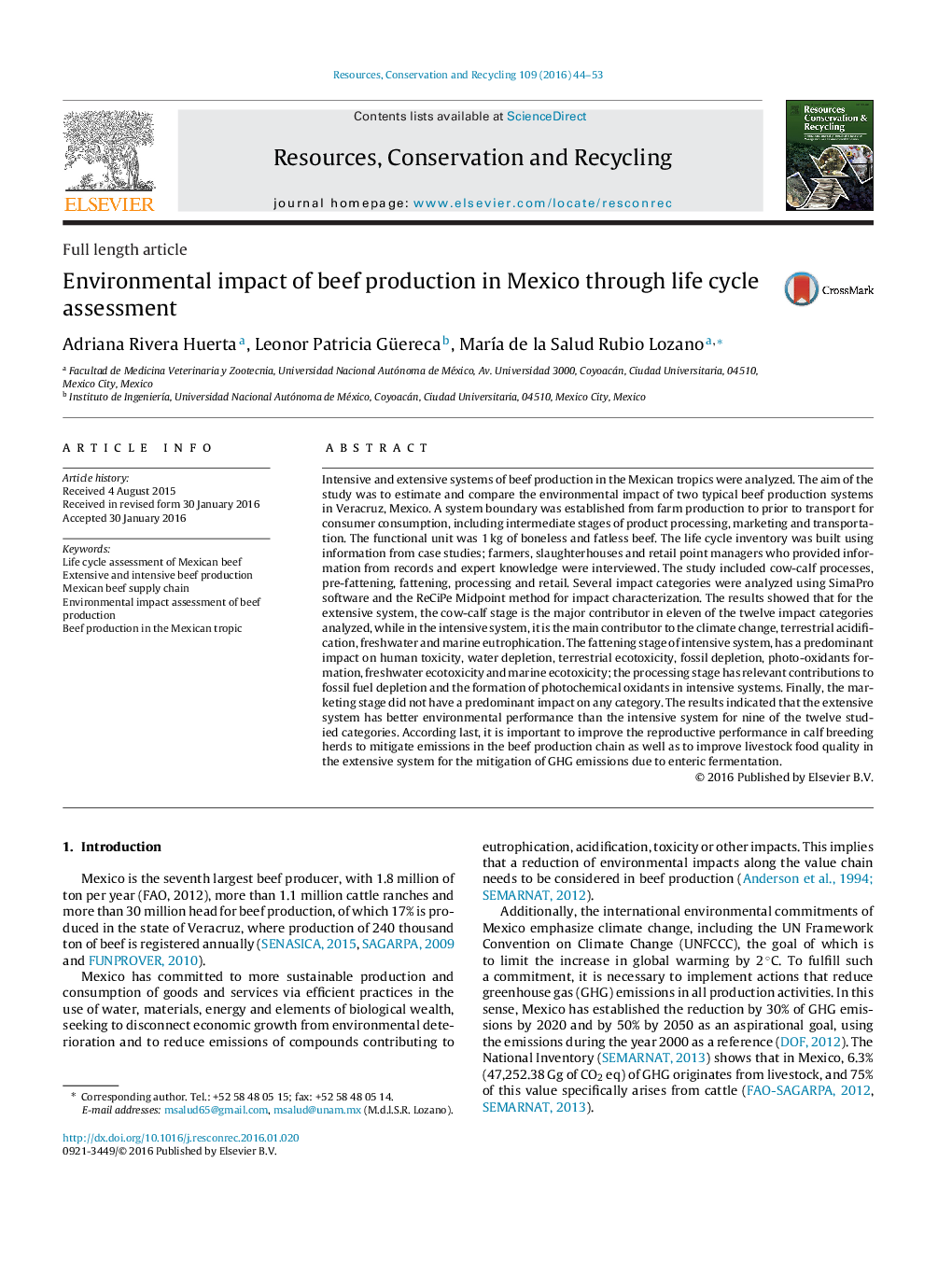| کد مقاله | کد نشریه | سال انتشار | مقاله انگلیسی | نسخه تمام متن |
|---|---|---|---|---|
| 7494878 | 1485682 | 2016 | 10 صفحه PDF | دانلود رایگان |
عنوان انگلیسی مقاله ISI
Environmental impact of beef production in Mexico through life cycle assessment
ترجمه فارسی عنوان
تأثیرات زیست محیطی تولید گوشت گاو در مکزیک از طریق بررسی چرخه زندگی
دانلود مقاله + سفارش ترجمه
دانلود مقاله ISI انگلیسی
رایگان برای ایرانیان
کلمات کلیدی
بررسی چرخه زندگی گوشت گاو مکزیکی، تولید فراوان و شدید گوشت گاو، زنجیره تامین گوشت گاو مکزیکی، ارزیابی اثرات زیست محیطی تولید گوشت گاو، تولید گوشت گاو در گرمسیری مکزیکی،
موضوعات مرتبط
مهندسی و علوم پایه
مهندسی انرژی
انرژی های تجدید پذیر، توسعه پایدار و محیط زیست
چکیده انگلیسی
Intensive and extensive systems of beef production in the Mexican tropics were analyzed. The aim of the study was to estimate and compare the environmental impact of two typical beef production systems in Veracruz, Mexico. A system boundary was established from farm production to prior to transport for consumer consumption, including intermediate stages of product processing, marketing and transportation. The functional unit was 1Â kg of boneless and fatless beef. The life cycle inventory was built using information from case studies; farmers, slaughterhouses and retail point managers who provided information from records and expert knowledge were interviewed. The study included cow-calf processes, pre-fattening, fattening, processing and retail. Several impact categories were analyzed using SimaPro software and the ReCiPe Midpoint method for impact characterization. The results showed that for the extensive system, the cow-calf stage is the major contributor in eleven of the twelve impact categories analyzed, while in the intensive system, it is the main contributor to the climate change, terrestrial acidification, freshwater and marine eutrophication. The fattening stage of intensive system, has a predominant impact on human toxicity, water depletion, terrestrial ecotoxicity, fossil depletion, photo-oxidants formation, freshwater ecotoxicity and marine ecotoxicity; the processing stage has relevant contributions to fossil fuel depletion and the formation of photochemical oxidants in intensive systems. Finally, the marketing stage did not have a predominant impact on any category. The results indicated that the extensive system has better environmental performance than the intensive system for nine of the twelve studied categories. According last, it is important to improve the reproductive performance in calf breeding herds to mitigate emissions in the beef production chain as well as to improve livestock food quality in the extensive system for the mitigation of GHG emissions due to enteric fermentation.
ناشر
Database: Elsevier - ScienceDirect (ساینس دایرکت)
Journal: Resources, Conservation and Recycling - Volume 109, MayâJune 2016, Pages 44-53
Journal: Resources, Conservation and Recycling - Volume 109, MayâJune 2016, Pages 44-53
نویسندگان
Adriana Rivera Huerta, Leonor Patricia Güereca, MarÃa de la Salud Rubio Lozano,
